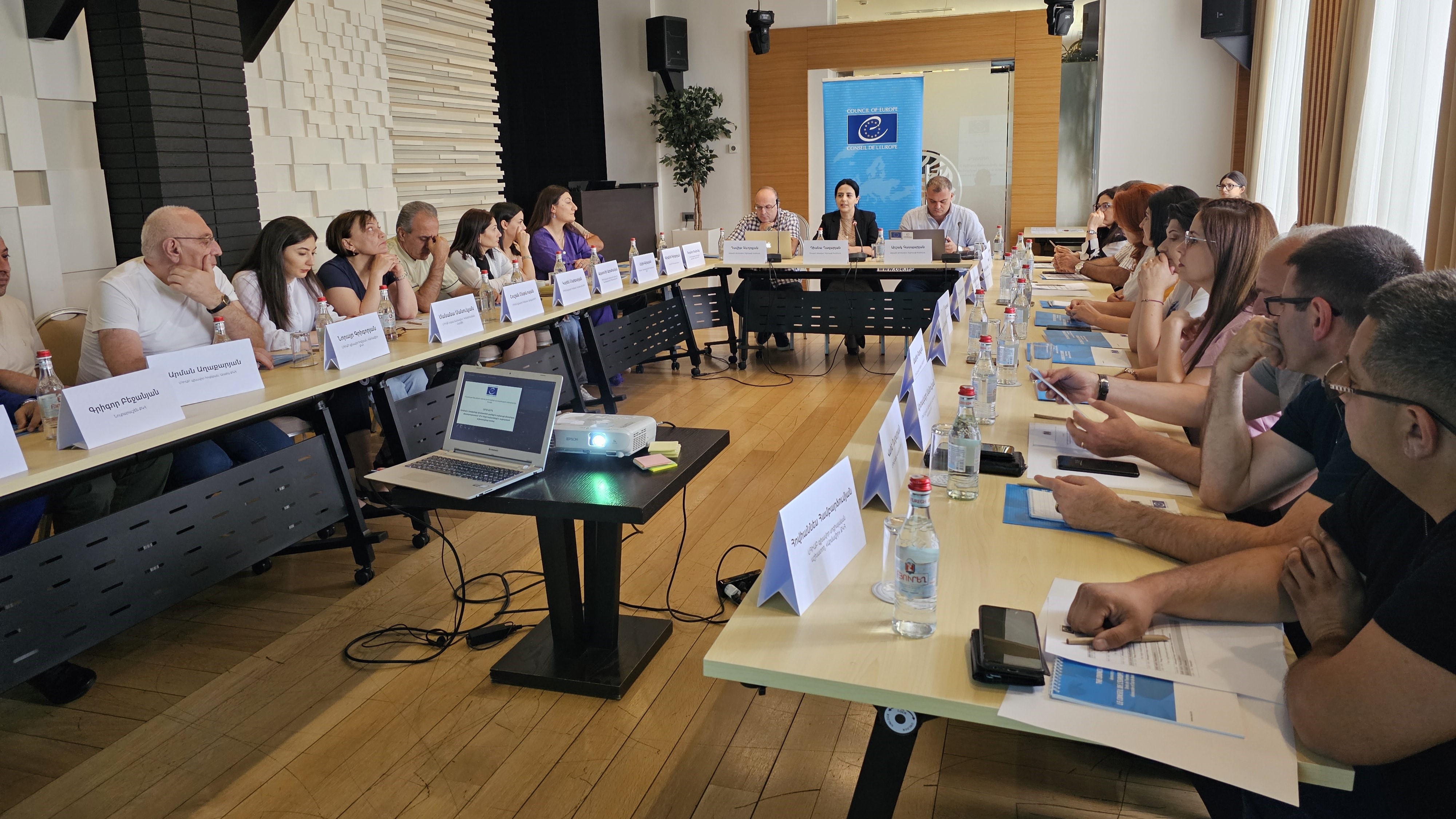On 02 July 2024 a Risk and Needs Assessment (RNA) tool for convicts was adopted by decree of the Minister of Justice of Armenia, marking a paradigm shift in the approach to resocialisation of persons deprived of liberty. This tool must now be applied across all penitentiary institutions to assess the resocialisation needs of individuals, aiming to facilitate their successful reintegration into society.
The RNA tool represents a progressive instrument as it allows for a systematic detailed evaluation of each inmate’s specific needs and risks, enabling tailored rehabilitation plans. This method moves away from a one-size-fits-all model, acknowledging that every person has unique circumstances that require personalised interventions. The adoption of the RNA tool underscores Armenia’s commitment to modernise its penitentiary system, supporting the overall well-being of individuals deprived of liberty and preparing them for a life after release.
The Council of Europe supported Armenian national authorities in developing the RNA tool, starting with its drafting and pilot phase in four penitentiary institutions, gathering valuable insights for refining it and paving the way for nationwide adoption. In addition, the Council of Europe facilitated the introduction of comprehensive training programmes for penitentiary staff, ensuring they have the skills and knowledge to use the RNA tool effectively. Furthermore, a detailed guide was developed with step-by-step instructions and best practices, ensuring consistent application across all institutions. With this comprehensive support, Armenia is well-positioned to create a more human-centred and effective penitentiary system, ultimately benefiting its society as a whole.
Therse activities are part of the Council of Europe’s support within the framework of the Project “Strengthening the protection of the rights of persons in detention” that assists the national authorities to further enhance penitentiary reform, prison health care and the protection of human rights of persons deprived of liberty. The Project is financed within the framework of the Council of Europe Action Plan for Armenia 2023-2026 and implemented by the Council of Europe.








